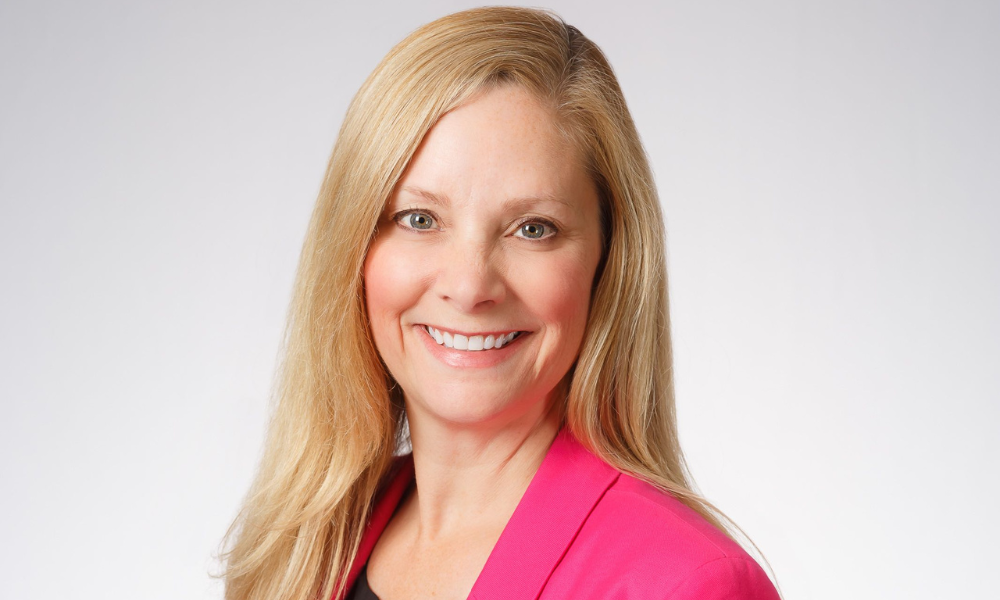HR leader profile: Michelle Dulmadge of Surerus Murphy Joint Venture

Despite having a father who worked in people management, Michelle Dulmadge didn’t immediately enter the HR profession.
“I really came to it organically as opposed to intentionally,” says the VP of HR at Surerus Murphy Joint Venture in Calgary.
“I took a lot of different subjects in university and never settled on any one of them. And I just happened upon an opportunity at a staffing agency, and they were willing to give me education in recruitment, and talent acquisition.”
Dulmadge eventually found herself working in human resources full time and has come to truly appreciate it.
“What I love about human resources as a field now is that there are so many bright, talented people seeing the potential in human resources that they're now pursuing it very intentionally, and education is rising up to provide training and development opportunities, so that the next generation of HR professionals is coming out a million times more sophisticated and educated and aware of the potential of this field.”
More than 18 years at AltaGas
One highlight of her career was working at AltaGas, where Dulmadge worked for more than 18 years, progressing from manager of corporate administration to director of HR, people and corporate services before leaving in 2018.
“It's funny because I would say, in hindsight, I wouldn't probably advise anyone to stay with an organization that long,” she says.
“I would have left if not for… a leader who really believed in growing and developing people. And probably every time I started to feel really confident and somewhat bored in a role, a new opportunity would come and I would be challenged in a different way. And I would layer the experiences I'd learned along the way into the next opportunity.
“I said to myself I would leave when I wasn't challenged anymore, but I was challenged for a very long time.”
Focus on culture at Surerus Murphy Joint Venture
Most recently, Dulmadge joined Surerus Murphy Joint Venture in April 2022. It’s a joint venture between two family-owned businesses, with the Murphy side a very large construction company based in the U.K. and Surerus based in Canada. The company has also acquired a business in the United States, so the expansion continues.
“Our focus is on getting to know the new part of our workforce, and providing them with support, and then really looking at how do we support an integration to some extent of culture,” she says.
“We've done an exercise where we've explored our values and their values and are working towards alignment between both organizations. And we've been really mindful of being curious about what makes them successful and ensuring that we're enhancing that and we're adding to it — we're not trying to evolve the culture overnight.”
The company has a core employee base of about 230 people, but can grow based on projects, says Dulmadge, reaching upwards to 2,000 to 3,000.
“We contract and expand pretty significantly, which certainly creates complications in terms of being able to connect and engage with the workforce. But we're agile in terms of being able to meet the needs of the projects as we take them on.”
Destigmatizing mental health in construction
Another big focus and passion is mental health, says Dulmadge, who cites the alarming statistic that construction workers have a 65% higher suicide rate than workers in all other sectors.
“Our projects are quite often in remote areas and you're away from your family. And a lot of our workers understand that they make a sacrifice to work on the project and hopefully benefit their families in other ways; but for us, that's always been a challenge, and an area that we focused on is wellness,” she says.
“That's something that drew me to joining the organization in the first place was a very strong emphasis on wellness, and trying to destigmatize mental health, especially with men, and especially in construction.”
As part of that, every person has to go through suicide prevention training, plus counselors are made available for some of the more challenging shifts, says Dulmadge.
“The one thing I love about this organization as well is we know we have a long way to go. And we’re never satisfied in terms of what we're doing. And so we do an annual culture survey and try to use the feedback from there to make sure that we're using data to drive decisions for the workforce, and those kind of things.”
Overall, it’s all part of the evolving nature of human resources, she says.
“Through data and through understanding human behaviour, there is a realization that the people of the organization drive your results. And so you have to invest in the people to ensure that you're creating the best product as an organization. And so what we've really seen is an alignment with the people resource or human resources to the business strategy.”




